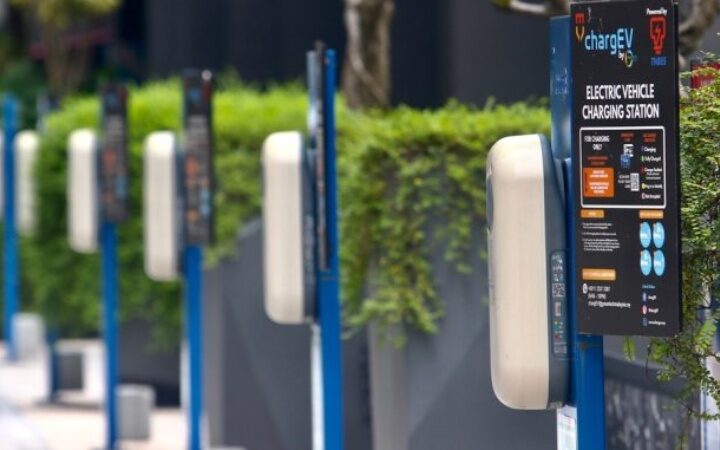As the leaders of Japan, South Korea, and China hold an unusual trilateral summit in Seoul, North Korea has notified Tokyo that it plans to launch its second military reconnaissance satellite by June 4, Japan’s maritime report said. The National Security Agency made the announcement early Monday morning.
Following North Korea’s announcement, the Coast Guard has designated three areas near the Korean Peninsula and Luzon Island in the Philippines as dangerous maritime zones where debris from satellite-carrying missiles could fall, and the launch period is 6 days. It was announced that it would last until April 4th. .
These zones were the same zones established before North Korea’s last successful satellite launch in November. Shortly after this success, North Korea announced plans to launch three more reconnaissance satellites into orbit.
After Monday’s announcement, senior officials from Japan, South Korea and the United States called on North Korea to halt its plans, the Ministry of Foreign Affairs announced in Tokyo, and all satellite launches were subject to a U.N. Security Council launch ban. It said it was a “clear violation” of the resolution. It uses ballistic missile technology.
However, North Korea has said in the past that the U.N. measures do not apply to its nominally civilian space program, while Tokyo, South Korea and Washington have said that satellite launches use similar technology and will improve missile capabilities. This is seen as an attempt at deception in order to trick the public.
The announcement could add discussion of North Korea’s increasingly powerful missile and nuclear program to the agenda of the first trilateral summit between Japan, South Korea, and China since 2019, scheduled for later Monday in Seoul. .
In particular, Russia’s role in North Korea’s space program could play a role in the tripartite talks.
South Korea has said that North Korea is supplying weapons to Moscow in exchange for Russian space technology know-how (Russian President Vladimir Putin said this in an unusual meeting with Kim last September). However, it is unclear whether Russia is supplying North Korea with weapons. The weapon had technical assistance and how it helped his satellite program.
A senior South Korean defense official told Yonhap News on Sunday that a large number of Russian experts were in the country to support North Korea’s reconnaissance satellite launch activities, and North Korea was conducting more engine tests than expected. , said it was likely to meet the “high” criteria.
“North Korea has very carefully conducted (rocket) engine tests much more than expected,” the official said. “Looking at North Korea`s activities last year, it should have already staged a (launch).”
Prior to the November launch, North Korea conducted two launches in May and August. An attempt was made to fire it and it failed.
“North Korea might have been brave enough to stage launches when it didn’t know much, but the (Russian) experts likely told them not to,” the official added.
North Korea has attempted eight satellite launches since 1998, and appears to have succeeded in placing two of them into orbit.
The North Korean regime has long exaggerated its successes, especially in the military, and observers regularly caution against taking North Korea’s claims at face value.
In case the rocket or debris is shot down, Tokyo has taken countermeasures. It has sent PAC-3 ground-based missile defense batteries to the Miyako, Ishigaki, and Yonaguni islands in Okinawa and has deployed Maritime Self-Defense Force Aegis destroyers, which are outfitted with SM-3 interceptors, to the waters surrounding Japan.
The spy satellite program in North Korea is deemed a “indispensable” countermeasure against the “space militarization” of the United States and its allies by the nation’s state-run media.
As part of a larger modernization effort to monitor U.S. and ally forces, the North has been attempting to launch a military spy satellite into orbit, but defense analysts believe this can be extremely challenging.
Observers also wonder how advanced North Korea’s satellites will be, given the challenges of camera performance, difficult-to-obtain components, and the limited window of time available to take snapshots of military facilities. states that it is unknown.
- NBA Rookie of the Year Favorite: Former UConn Huskies Star Guard - December 17, 2024
- Where to Watch the ‘Yellowstone’ Finale Without Cable: A Simple Guide - December 14, 2024
- Wendy’s is celebrating the festive season with 12 days of ‘Bow-Go’ deals exclusively on the app - December 13, 2024









